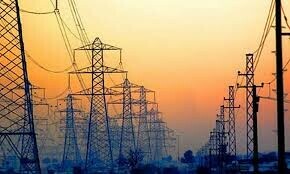KARACHI: The country’s first-ever dirty-cargo terminal would come on line by the end of the year which would help innovate handling of cement, clinker and coal, official sources said.
Being a greenfield project, the entire operational handling of dirty cargo would be through a covered conveyor belt starting from silos to ship or from ship to shore, sources said.
The Pakistan International Bulk Terminal (PIBT) is being built at Port Qasim at an estimated cost of $225 million by a local company in partnership with the World Bank and International Finance Corporation (IFC).
The civil work of the terminal, spread over 72 acres, was almost complete and the company was currently importing and installing equipment, such as cranes and conveyer belt, to ensure that the first ship could call at the terminal in December, sources said.
The work on five silos for the storage of bulk cement and clinker for export has been completed. Each silo has a storage capacity of 10,000 tonnes. The length of the jetty is 460 metres and it has a capacity to handle two vessels at a time.
Sources said the length of the conveyor belt was seven metres and it would be directly connecting a ship for loading and unloading. There are going to be three cranes at the jetty and they are expected to arrive in October, sources said. The PIBT will have its own captive power plant of 15 megawatts.
“The terminal has annual capacity to handle 12m tonnes coal (import) and 4m tonnes (export) of cement and clinker,” Chief Executive Officer of PIBT Sharique A. Siddiqui told Dawn.
He regretted that a lot of time was lost because a Turkish company with a local partner initially given contract for civil work could not perform and the terminal work was delayed by almost a year.
The Marine Group, he said, was the sponsor of the PIBT and was the second port infrastructure company listed on the Pakistan Stock Exchange after the Pakistan International Container Terminal (PICT).
The dirty-cargo terminal has come up at a time when the country was set to import huge quantities of coal to run power plants, Mr Siddiqui added.
“Pakistan took a long time to realise that coal-fired power plants give cheaper energy over fuel-based plants. Under the new policy laid down by the government, most power plants will now be coal based,” he said. “Coal has a share of 41 per cent in global energy mix.”
He said India also had quite a high share of coal for producing energy and their source is also the same belt of Thar.
Published in Dawn, August 17th, 2016











































